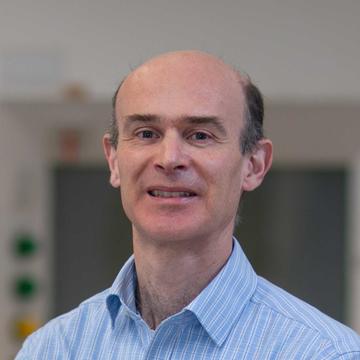Simon Clarke

Professor Simon Clarke
Professor of Chemistry
The Clarke group’s research aim is the discovery of new compositions in the solid state with the aim of ultimately exploiting their physical or chemical properties. We use a wide range of synthetic methods and we correlate properties with compositions and crystal structures using a wide range of characterisation techniques. Many technological developments are driven by the discovery of solids with particular magnetic, electronic or chemical properties. The compounds we make may also be desirable model materials with which to test theories of magnetism or superconductivity in condensed matter physics.
We are a group of about 10 fun-loving Postdocs, Graduate Students and MChem students, and each member of the group focuses on both the synthesis and characterisation of a set of compounds.
Our particular focus is non-oxide (e.g. nitride or chalcogenide) or multi-anion (e.g. oxide chalcogenide) compounds which offer contrasting and complementary chemical and physical properties to the better-studied oxides. We make these compounds at both high and low temperatures and are particularly keen to make metastable phases.
For characterisation we make regular use of International Facilities such as the Diamond Light Source and the ISIS Pulsed Neutron and Muon Facility at the Harwell Campus, and the complementary facilities in Grenoble. Increasingly we use these beamlines to probe solid state reactions as they happen.
A major project in the group is the exploration of the versatility of transition metal oxide chalcogenides and oxide pnictides in which transition metal ions are often found in unusual coordination environments. We are investigating new magnetic and electronic states in these compounds in a collaboration with Oxford Physics supported by the Engineering and Physical Sciences Research Council. And which also spans a collaboration with several international partners in Japan, France, Belgium and China focused on new energy materials. These compounds also have promise as Li battery electrode materials and our work is also supported by the Faraday Institution.
A second major focus is new superconductors. New high temperature iron-containing superconductors were discovered serendipitously in 2007/8. These compounds are still relatively poorly understood. We have been engaged in a vigorous collaboration with colleagues in Oxford Physics to make new examples of these materials and understand their physical properties, and are currently investigating possible applications of some of these in technology in collaboration with the Centre for Applied Superconductivity led by the Oxford Materials department. We are also searching for the next big thing in superconductivity.....
Further details of these and other projects may be found in the research section of the group's webpages.
Simon Clarke is a Professor of Chemistry and a Tutorial Fellow at Exeter College. He obtained his first taste of research as an undergraduate stagiaire at the Institut Laue Langevin (ILL) in 1989 with Dr Jeremy Cockcroft. His undergraduate and graduate research was carried out in Oxford on aspects of solid state chemistry and magnetism with Professor Andrew Harrison and Professor Matt Rosseinsky. He gained a Royal Society/NATO Postdoctoral Fellowship to work on nitride chemistry with Professor Frank DiSalvo at Cornell University for two years (1995 & 1996) and then returned to Oxford as a Lloyd’s of London Tercentenary Foundation Fellow to begin work on oxynitride chemistry. In 1998 he was elected to a lectureship at the University of Exeter and moved to his current post at the University of Oxford in September 2000. He was awarded the Gibson-Fawcett Award by the Royal Society of Chemistry in 2010 and became a Professor of Chemistry in 2014. He was the Head of the Inorganic Chemistry Section of the Department from 2019-2022.




